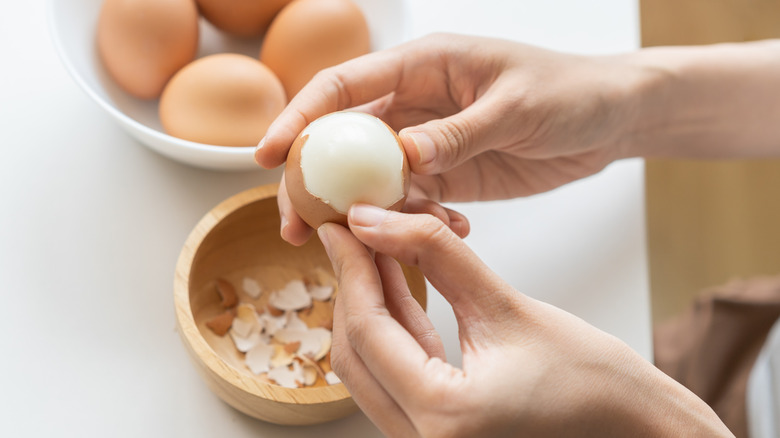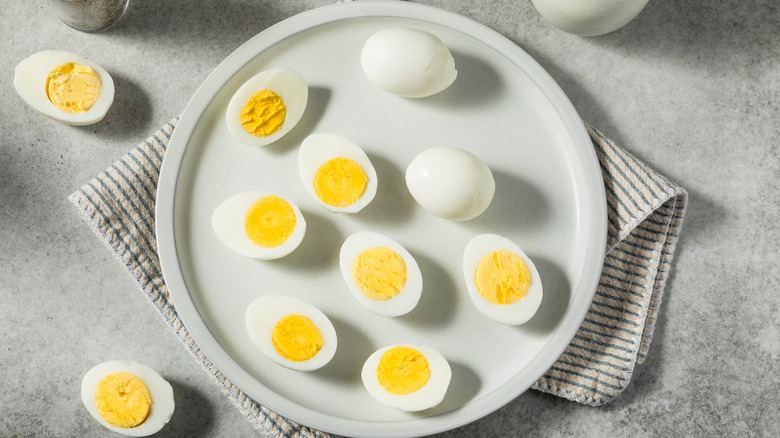Here's How To Peel Hard-Boiled Eggs Like Gordon Ramsay
Gordon Ramsay isn't always the best at keeping his cool under pressure. However, this British chef does have heaps of useful tips and tricks up his sleeve when it comes to cooking. One such hack is to peel hard-boiled eggs more efficiently by dunking them in cold water once cracked to safeguard the delicate texture of the whites from unsightly nicks.
While peeling eggs neatly isn't so much of a problem if you're going to chop or mash them up to make an egg salad, you'll need them to have an immaculate surface when making deviled eggs or salad niçoise where they'll be halved or sliced into quarters. In a Youtube clip where Ramsay is preparing Scotch eggs, he explains that "cracking and cooling the eggs quickly will prevent the yolks turning gray" after boiling. This is why he takes care to drain away the hot water at speed and runs them under plenty of cold water while they're still in the pan. This action immediately stops the eggs from cooking further, ensuring that their centers remain jammy and soft rather than dry and unpalatable. Next he cracks one of the eggs on the side of the pan to create small fractures in the shell and dunks it back into the cold water it was sitting in for a second. Plunging the cracked egg into the filled pan allows the water to seep underneath the fissures in the shell so it can come off more easily.
Cold water shocks boiled egg whites and pulls them from the shell
When you put freshly cooked boiled eggs in cold water, the sudden temperature change causes the whites to shrink back and pull away from the shell. This phenomenon, known as thermal shock, creates a little gap between the whites and the shell, giving you some wiggle room to remove it without damaging the soft exterior of the egg. If you're prepping a large number of eggs for a party, consider having an ice bath ready to dunk your huevos into once they're cooked to your liking. This move is useful for cooling an abundance of eggs down quickly, ensuring that the last one you peel is as perfect as the first. As Ramsay advises, you can simply give each cracked egg a quick dunk in the water and peel. Alternatively, keep the egg under the water and peel it while submerged to guarantee every last speck of shell is cleanly washed away.
If you've ever noticed that some hardboiled eggs can be peeled neatly in seconds while others have stubborn shells that stick to the whites, you might be interested to know that the older the egg, the easier is it to peel. This occurs because the albumen inside an egg becomes less acidic as it ages, causing it to weaken its bond to the inner membrane that lies just beneath the shell.

